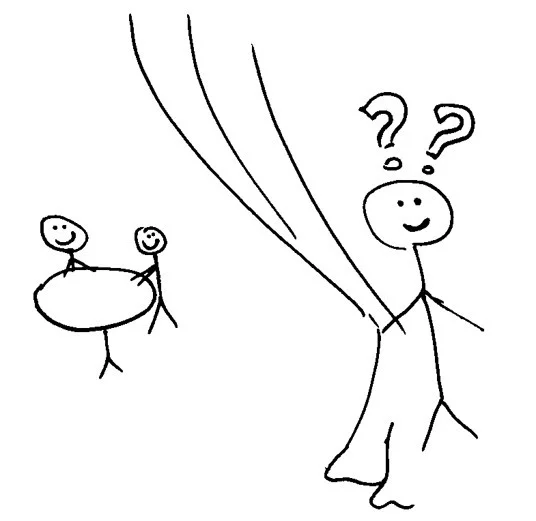‘What are you going to do with me now?’ or ‘I didn’t really know what to expect’ are sentences I often hear at the beginning of a counseling session. Not knowing what will happen can make us quite nervous, and for some this nervousness is even a reason to say ‘my questions are not that important, I don’t need counseling’. I congratulate each and every one of you who had the courage to come to a counseling session. It does take courage to expose yourself, not knowing what will come. For those who were secretly wondering what happens behind closed doors in my counseling room, let’s have a look at what career counseling is about.
The first and most important aspect of counseling is that I am not doing anything to you. I do not know you enough to take decisions on your behalf. Rather, it is your time; you decide what is most important and relevant for you at that moment. You may want to ask questions on how to present your CV, and discuss competencies you have acquired ‘on the side’ of doing research. Maybe you would rather reflect on difficult aspects of your new role as PhD or Postdoc. Or do you want to figure out a strategy how to deal with difficult interview questions or the entire application process? Finally, you may want to make a plan to put yourself in a good position for your next career step. Are you the person who keeps ending up helping everyone while you are getting more and more behind with your own tasks, and you think there must be a way to escape? (There is, come talk to me!) Any topic that is related to your career planning and development is fine, and the choice is yours. It may happen that we start with one topic and end up somewhere completely different. That is fine as well. It is what fascinates me so much with counseling, to see how two brains together follow a path that neither of them would have chosen on its own.
I never know where a conversation leads to, and that is what makes my job interesting. I offer you my brain to help you think through your question and gain a new perspective, and I offer you my experience (I am also nervous, secretly asking myself if I am asking the right questions or if I am the right person to support you, but you will not see that, as part of the job is making you feel comfortable). I ask questions, lots of questions… but don’t be afraid, this is not an oral exam. You can decide if you want to answer, or take the question home with you to think about during a quiet moment. You can also decide to forget about what I said. Again, the choice is yours. If you asked for comments on your CV, it is up to you to decide which of those you want to incorporate, and how you do that.
I am there for you. I help you gather ideas, sort your thoughts, consider aspects that you have not thought of. It is my job to be supportive and encouraging. Everything you tell me is confidential (with the exception that I will have to act on some criminal offenses). Even the fact that you talked to me is confidential, I won’t come up to you at OASE and ask how it is going. Please do not take it as an offense if I don’t, it is to protect you because I have no way to know whether you are comfortable sharing that you had career counseling with the people you are with. In other words, I am paid to be nice to you, and to help you find an answer to your question. Think of it as a conversation with a good friend, except that I cannot tell anything to your other friends. Thank you for sharing your stories, for being open about difficulties, thoughts and insecurities, and for making my work so inspiring.
